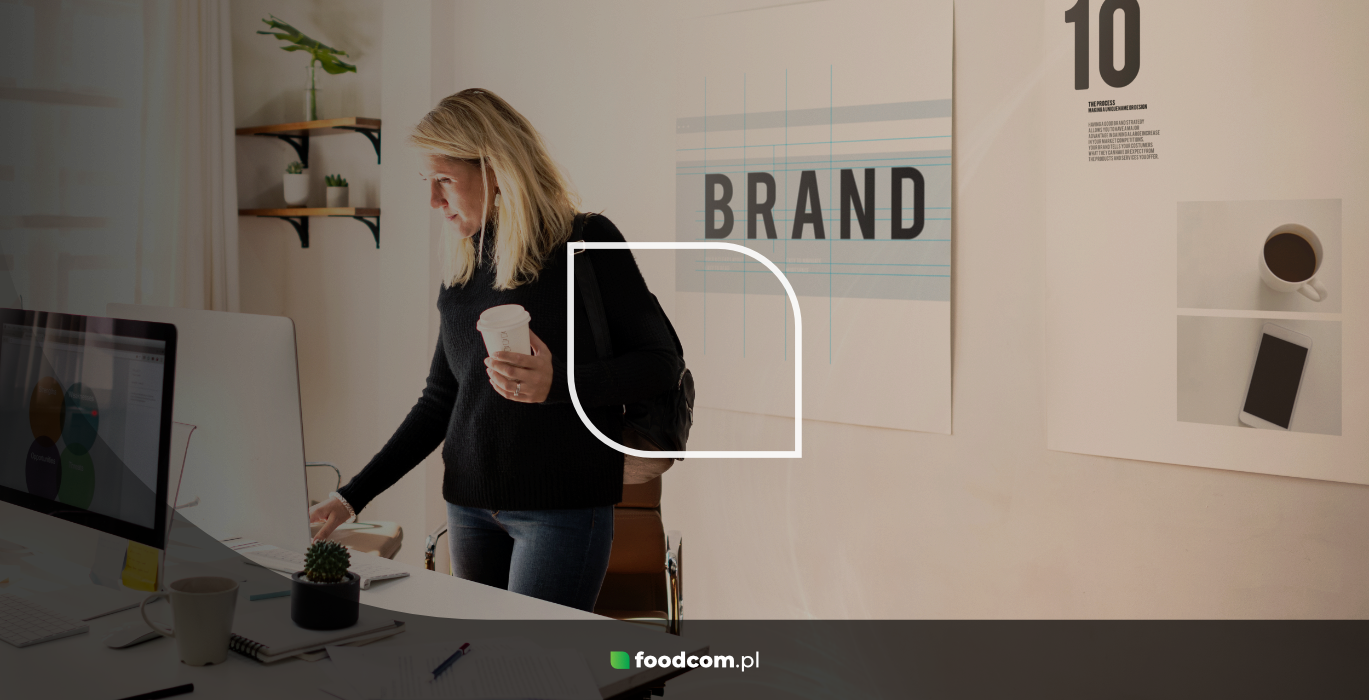- Personal branding is based on authenticity, i.e. the consistency of our values, actions and professional communication.
- Building a professional reputation is mainly achieved through the quality of work, the approach to tasks and relationships with the team, and not only through self-presentation.
- Conscious and professional use of social media such as LinkedIn significantly strengthens our recognition as experts.
- Support from the employer in the development of the personal brand of employees contributes to the growth of the company’s brand.
Personal branding is not a concept reserved exclusively for influencers or self-employed individuals. In fact, every employee, regardless of their position, builds a professional image that influences the way they are perceived in the organisation.
Our day-to-day actions, the way we communicate and the quality of our collaboration with others shape our professional reputation. It is this, whether or not we consciously work on it, that becomes the basis of a personal brand.
Personal brand is not self-promotion or image creation. It is a deliberate building of trust through consistency, competence and values presented in daily work. It is also a long-term investment in career development, team position and professional relationships. In times of dynamic change and non-linear career paths, the personal brand is becoming a real competitive advantage, also within organisations.
Personal brand from the inside – what really makes it?
Building a personal brand in the workplace is not just about self-presentation or being active on LinkedIn. It’s primarily an internal process that starts with understanding your own values, goals and how you want to be perceived by those around you.
Authenticity as a foundation
A strong personal brand is based on authenticity, or consistency between who we are and how we act. Attempts to create an ‘image for show’ quickly lose credibility, especially in a work environment where daily interactions quickly verify false attitudes.
Competence, not just on the CV
A personal brand is also about quality and consistency in the execution of responsibilities. How we approach tasks, how we solve problems and whether we are able to take responsibility for our decisions has a real impact on our position in the team and the company.
Values that resonate with the environment
Understanding and consistently expressing one’s professional values – such as honesty, integrity or cooperativeness – builds trust. When these values align with the company culture, the personal brand gains additional strength and naturally supports the team’s goals.
Consistency in action
How we communicate in meetings, how we respond to crises, how we treat others – all these elements contribute to an image that stays with us for a long time. A personal brand is created out of more than one success; it is the result of consistency and credibility.
According to research by Deloitte, as many as 84% of HR leaders believe that the consistency of an employee’s personal values with the company’s culture is important when deciding on promotion or development within the organisation. This shows that personal brand is an essential part of a career, not just an add-on.
Visibility without being pushy – how to get noticed in an organisation
Building a personal brand at work is not about talking loudly about yourself. Rather, it is about attracting attention naturally and authentically with your attitude, knowledge and commitment. Visibility, on the other hand, does not have to be self-promotion – it can mean being consistently present where you can make a real contribution.
Reputation as a result of actions, not words
An in-house personal brand is built primarily through reputation, i.e. what others say about us when we are not in the room. How we work with the team, whether we meet deadlines, how we respond to difficult situations, whether we are supportive of others – all this creates an image that takes on a life of its own.
An opinion leader without a management position
People who share knowledge, speak up in discussions and support the development of the team start to be seen as informal opinion leaders over time. According to LinkedIn research, employees who actively develop their personal brand are three times more likely to be seen as having leadership potential, even if they do not formally hold such a role. Visibility therefore starts with substantive engagement, not self-presentation.
Read also: How do you develop your leadership skills?
Online personal branding – how to use LinkedIn and other platforms wisely
We are building more and more elements of our professional image online, primarily on social media such as LinkedIn. This is a space where we can show ourselves as experts, engaged people, open to development and collaboration.
A professional, consistent and up-to-date profile is fundamental. The photo, headline, description of experience and skills should clearly present who we are professionally and the direction we want to develop in. A well-prepared profile acts as a digital business card – it inspires trust and facilitates contact, also in terms of internal development opportunities or new projects.
The next step is to be active. It is not about publishing every day, but about consciously sharing knowledge, opinions or valuable industry content. Even short reflections after a conference, a summary of a project or a comment under an interesting post can increase our visibility and build an expert image.
It is worth remembering authenticity. Everything we publish online should be consistent with how we function at work. A discrepancy between the digital world and the real world can undermine credibility and damage a personal brand instead of enhancing it.
According to research by MSLGroup, content shared by employees generates an average of 561% more reach than messages published by official company accounts. This shows how much potential there is in individual employee activity.
How employers can support employees’ personal brand
Building a personal brand is the employee’s job, but the employer should create an environment that supports this development. Today’s organisations increasingly recognise that strong employee personal brands translate into a stronger company brand.
Support can take many forms: from communication and branding training, mentoring and development programmes, to providing opportunities to speak at conferences or publish expert articles. Employees who feel that their voice matters are more likely to engage internally and externally.
Worth reading: From junior trader to sales success: mentoring at Foodcom S.A.
Employee advocacy programmes, in which companies consciously invite employees to share knowledge and promote the company culture on social media, are also becoming increasingly popular. These types of activities increase the reach of the employer brand while empowering employees as experts.
Personal branding is a long-term strategy that translates into professional development, workplace relationships and the perception of our role in the organisation. Its strength comes from consistency – between who we are, what we stand for and how we operate on a daily basis.
A consciously built personal brand supports our career, but also brings significant value to the company. It reinforces the organisational culture, builds trust and creates an environment where the development of the individual goes hand in hand with the development of the team.
A good question to ask at the end is not “is it worth it?”, but “where to start today?”. Perhaps by updating your professional profile? Or perhaps from having a frank conversation with someone who sees us differently from ourselves? Every step, even the smallest, is part of the greater whole of your brand that works, even when you keep quiet.












